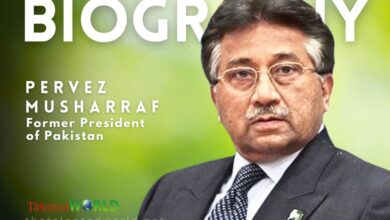Quick Facts
| Attribute | Details |
|---|---|
| Full Name | Liaquat Ali Khan |
| Date of Birth | October 1, 1895 |
| Place of Birth | Karnal, Punjab, British India (present-day Haryana, India) |
| Date of Death | October 16, 1951 |
| Place of Death | Rawalpindi, West Punjab, Dominion of Pakistan (present-day Punjab, Pakistan) |
| Manner of Death | Assassination |
| Resting Place | Mazar-e-Quaid |
| Nationality | British Indian (1895–1947), Pakistani (1947–1951) |
| Political Party | All-India Muslim League (1921–1947), Pakistan Muslim League (1947–1951) |
| Spouse | Ra’ana Liaquat Ali Khan (m. 1932–1951) |
| Alma Mater | Aligarh Muslim University (BSc in Political Science), Oxford University (LL.B. in Jurisprudence) |
| Title | Details |
|---|---|
| 1st Prime Minister of Pakistan | August 15, 1947 – October 16, 1951 |
| 1st Minister of Defence | August 15, 1947 – October 16, 1951 |
| 1st Minister of Foreign Affairs | August 15, 1947 – December 27, 1949 |
| Minister for Kashmir and Frontier Affairs | August 15, 1947 – October 16, 1951 |
| Minister of Finance of British India | October 29, 1946 – August 14, 1947 |
| President of the Pakistan Muslim League | September 11, 1948 – October 17, 1951 |
| Significant Contributions | Details |
|---|---|
| Pakistan Movement | Leading figure, known as Quaid-e-Millat (Leader of the Nation) |
| Cold War Alignment | Aligned Pakistan with the United States-led Western Bloc |
| Objectives Resolution | Promulgated in 1949, stipulated Pakistan was an Islamic democracy |
| Assassination and Legacy | Details |
|---|---|
| Assassination | Shot dead by Afghan militant Said Akbar on October 16, 1951, in Rawalpindi |
| Posthumous Title | Shaheed-e-Millat (Martyr of the Nation) |
| Legacy | Honored as one of Pakistan’s greatest prime ministers |
| Family Background and Education | Details |
|---|---|
| Family Background | Wealthy Muslim Rajput family with significant support to the British during the 1857 uprising |
| Education | Early education at home and in Karnal; BSc in Political Science and LL.B. from Aligarh Muslim University; LL.B. from Oxford University |
| Student Activities | Active in student unions at Oxford; Honorary Treasurer of the Majlis Society |
| Early Political Career | Details |
|---|---|
| Initial Involvement | Invited to the Indian National Congress; later joined the All-India Muslim League led by Muhammad Ali Jinnah |
| British India Finance Minister | Brief tenure as Finance Minister in the Interim Government of British India (1946-1947) |
| Titles and Honors | Details |
|---|---|
| Family Titles | Rukun-al-Daulah, Shamsher Jang, Nawab Bahadur (titles inherited from his grandfather Nawab Ahmad Ali Khan) |
| Oxford Recognition | Awarded Master of Law and a Bronze Medallion by the faculty of Oxford University |





